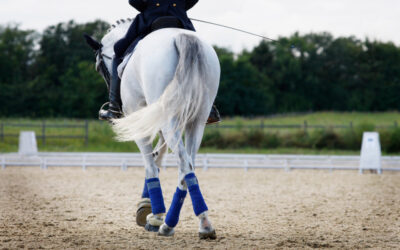Self-talk is something we all use a lot of the time. However, it is not always helpful. At its best self-talk has a variety of uses, it can be used to motivate, to aid focus, build confidence and aid skill acquisition. A good way to think of self-talk is as either functional or dysfunctional. In other words, does your self-talk bring you closer to achieving your aims? If so great, and if not change it. The self-talk we are going to be focusing on here is self-talk to improve rider performance.
Self-talk – Starting out
In the early stages of learning motor skills self-talk can take the form of being instructional, helping to guide the riders focus to the areas they are currently working on and reminding them of key aspects of correct technique. Even at this stage it is important not to make self-talk overly complicated, excessive verbal instruction can have the effect of disrupting skill (often referred to as paralysis by analysis). Instead, the rider should use cue words that bring to mind particular kinaesthetic images. For example, a rider’s self-talk might consist of ‘Look up, shoulders back, contact in elbows’ (As stated in a previous post, an individual’s working memory is extremely limited and easily over loaded so three items is plenty).
excessive verbal instruction can have the effect of disrupting skill
Self-talk – Further on
Once a skill has been automated a rider should aim to perform with minimal cognitive interference. This is because once a skill has become established efforts to consciously control it can actually disrupt it (back to paralysis by analysis). Therefore, self-talk should be minimal, often chunked up to a single phrase that can be linked to desired performance. For example, ‘think forward’.
When self-talk gets unhelpful
As stated earlier, self-talk is not always helpful. Therefore, it’s important to monitor internal dialogue and recognize when it’s not helping you achieve your aims, this will enable you to use a technique such as thought stopping to pause it in its tracks. Remember your working memory is a precious resource, don’t use it up on unhelpful chatter! I often invite riders to imagine their self-talk coming out of the mouth of a coach. Are the comments helpful? Would you happily part with your money and invite them back next week? Ultimately if you wouldn’t take it from a coach then you shouldn’t take it from yourself!
Remember your working memory is a precious resource
If you are interested in learning more about how you could use psychological skills to improve your riding performance get in touch for a free no obligation consultation.






0 Comments